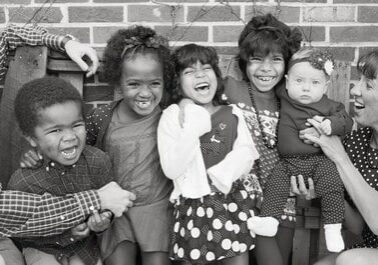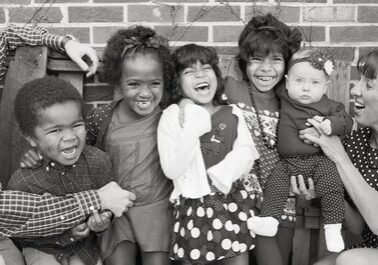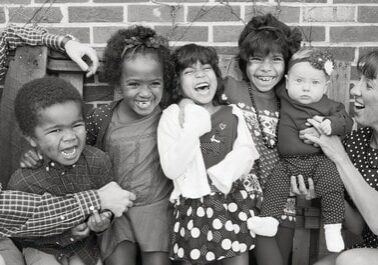by Sarah Roney
For a long time my husband and I complained that the adoption books didn’t have any answers for our family. When we adopted our daughter from Ethiopia we had read extensively, completed endless hours of online training and felt more than prepared to help her transition. But then she came home and instead of hoarding food, she wouldn’t eat. She didn’t flounder in transitioning between Amharic and English -she didn’t speak at all. For over 6 months we tried desperately to determine what was wrong, and only later discovered how severe her special needs were.
Thus we felt confident bringing our two daughters home from India three years later. If we could survive a “surprise special needs” adoption, we could handle anything… right? We’d read all of the books – twice. We could practically lead the online training. Let’s go get our girls.
Nevertheless, when a foretold textbook issue wormed its way into our family dynamics it took us months time to recognize it. Two of our daughters were born in 2010, so our agency suggested that artificial twinning could occur between them. We argued against the possibility, given that one them was developmentally delayed they wouldn’t feel the need to compete with one another. But with this many kiddos, everyone is very aware of who is oldest, who is biggest, whose birthdays come first, who gets what privileges… Everything, everything needs to be fair. We noticed their difficulties in interacting but never saw the issue for what it was until a close family friend pointed it out.
So we returned to the textbooks and read more. The answers are out there and they are helpful, but why did it take so long for us to realize the problem? I’ve found that when you are in the middle of your own life, you’re not always an accurate judge of your family’s reality. How do we get there sooner next time?
Perhaps the answer lies in community: small groups, coffee dates with close friends, supper clubs, Me-Too Groups, friends who brave an even meal with us, or neighborhood kids running in and out like it is their home too. This revolving door life is exhausting and humbling, but the answer to my question may be buried right beneath the greasy hand prints on the front door or the stacks of dirty dishes in the sink after our bi-weekly neighbor dinner. The secret may lie in the friends who come for lunch before quiet time and hear the mean words spoken between sisters, or the girlfriends who meet you at the park and notice the dynamics between daughters as they vie for attention at each others’ expense. Most of the time, these revelations come from the people in our life who are close enough to see the ugly messiness of adoption but stay by our side long enough to catch the glimpses of beauty hidden beneath the surface. They see these things because they are familiar enough to see our kids, and admittingly us, at our worse.
When I close the door behind someone and wonder “were the kids too overwhelming?” or drive away from the park with cheeks flushed from the embarrassment of a child’s inappropriate comment, I wonder if I should just give up. When my husband yells at our son in front of someone from church, or a friend swings by and the house is a mess, I wonder if community and relationship are even worth the humiliation endured to forge these bonds.
Though it doesn’t always feel like it, the answer is yes and always – even on our worst days. The bottom line is that even if we don’t always want people to see the worst in us, we need them to. Ultimately we are strengthened and our family grows as we hobble along. For it is in the insight of others and the kindness of God, that we are given what we need to grow in the places where we are the very weakest.
2 Corinthians 12:9 “But he said to me, “My grace is sufficient for you, for my power is made perfect in weakness.” Therefore I will boast all the more gladly about my weaknesses, so that Christ’s power may rest on me.”



